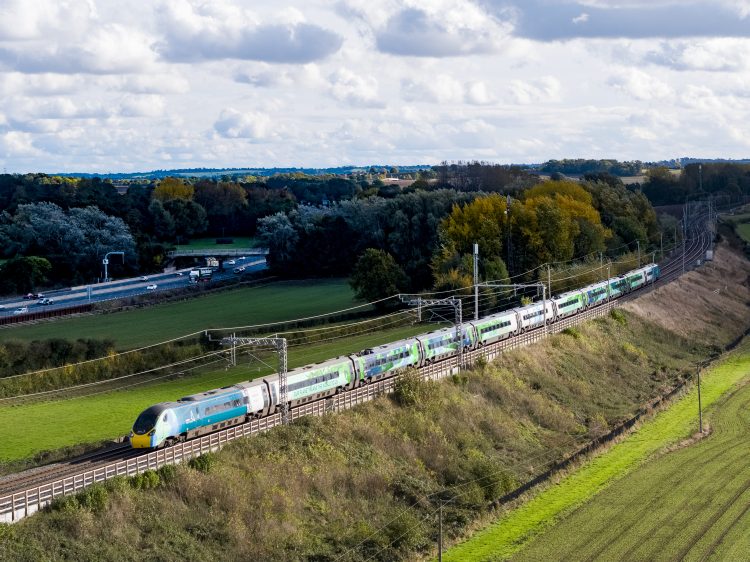As the Green Travel Pledge continues, the latest data released by Rail data market place last Tuesday shows that carbon emissions are a staggering 93.8% lower across the UKs rail business journeys when compared to individuals who still travel for business using petrol and diesel cars.
The latest data reveals details for over 40,000 point-to-point routes, encompassing more than 80,000 return trips from various locations throughout Britain.
The Rail Delivery Group (RDG) is encouraging businesses to demonstrate their dedication to sustainability by studying this new data to opt for sustainable and greener rail travel.

Upon registration, business travellers will have access to the carbon emissions data for specific journeys at the point of sale.
This information will be provided when booking through a travel management company or an online booking tool, allowing them to compare the environmental impact of rail travel with other transportation options, like cars or planes.
“We all have a responsibility to reduce our carbon footprint, so having our Green Travel Pledge data available through global and domestic travel management companies (TMCs) and online booking tools (OBTs) will enable more businesses to choose rail over other modes for business travel.
“We’re asking businesses to kickstart a movement towards more sustainable travel, with data on over 40,000 business routes available, and we’d like businesses to showcase their commitment to sustainability by using our industry-leading carbon data to make better and informed business travel decisions.”
Jacqueline Starr, Rail Delivery Group’s chief executive

Following data released in February 2024, it has been shown that travelling by train on the top 100 business routes is, nine times more environmentally friendly than driving a petrol or diesel car, and can be up to 80% less expensive than flying, according to research conducted in April.
RDG is urging businesses to recognise and use the data to their advantage when planning their business travel, committing to environmental, social, and governance (ESG) objectives, and revising travel policies.
Companies that employ this data will be making more environmentally friendly travel decisions, and their contributions will be recognised on World Car Free Day on September 22, 2024.

Following the initial introduction of the Green Travel Pledge, the Rail Delivery Group consistently amalgamate data on train occupancy, fuel type, exact journey distance, and various other factors to generate comprehensive, precise, and dependable carbon emission statistics for all direct business rail journeys throughout Britain.
“At Amex GBT, we continue to work alongside Rail Delivery Group to develop Green Travel Pledge.
“With Green Travel Pledge, we have a robust, data-driven way to show customers how rail emissions measure up against air and car, enabling us to make informed recommendations on modal shift that support their sustainability objectives. We believe rail should be at the heart of business travel, as a sustainable way to power progress.”
Dan Beauchamp, Vice President Amex GBT Consulting,

The most recent data was produced by the Rail Delivery Group, in collaboration with Thrust Carbon, 3Squared, Black Box Partnerships, and the broader rail industry, with additional support from the Great British Railway Transition Team.
This forms a segment of the rail industry’s Green Travel Pledge – a dedication to furnishing businesses with comprehensive, precise, and dependable data on the carbon emissions from rail travel throughout Britain, thereby encouraging the environmental advantages of rail.
The data is intended to establish an industry standard for transport carbon emissions and is considered to be the most precise carbon emission data ever produced for rail business travel in Britain.





Responses
I am certain that the substandard level of service offered by Cross Country (chiefly because the Voyager units aren’t attractive enough to people) plays a major part in putting off business travellers from using rail. Until this is addressed (why not just extend production of class 800s?), little will change.